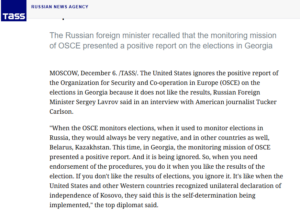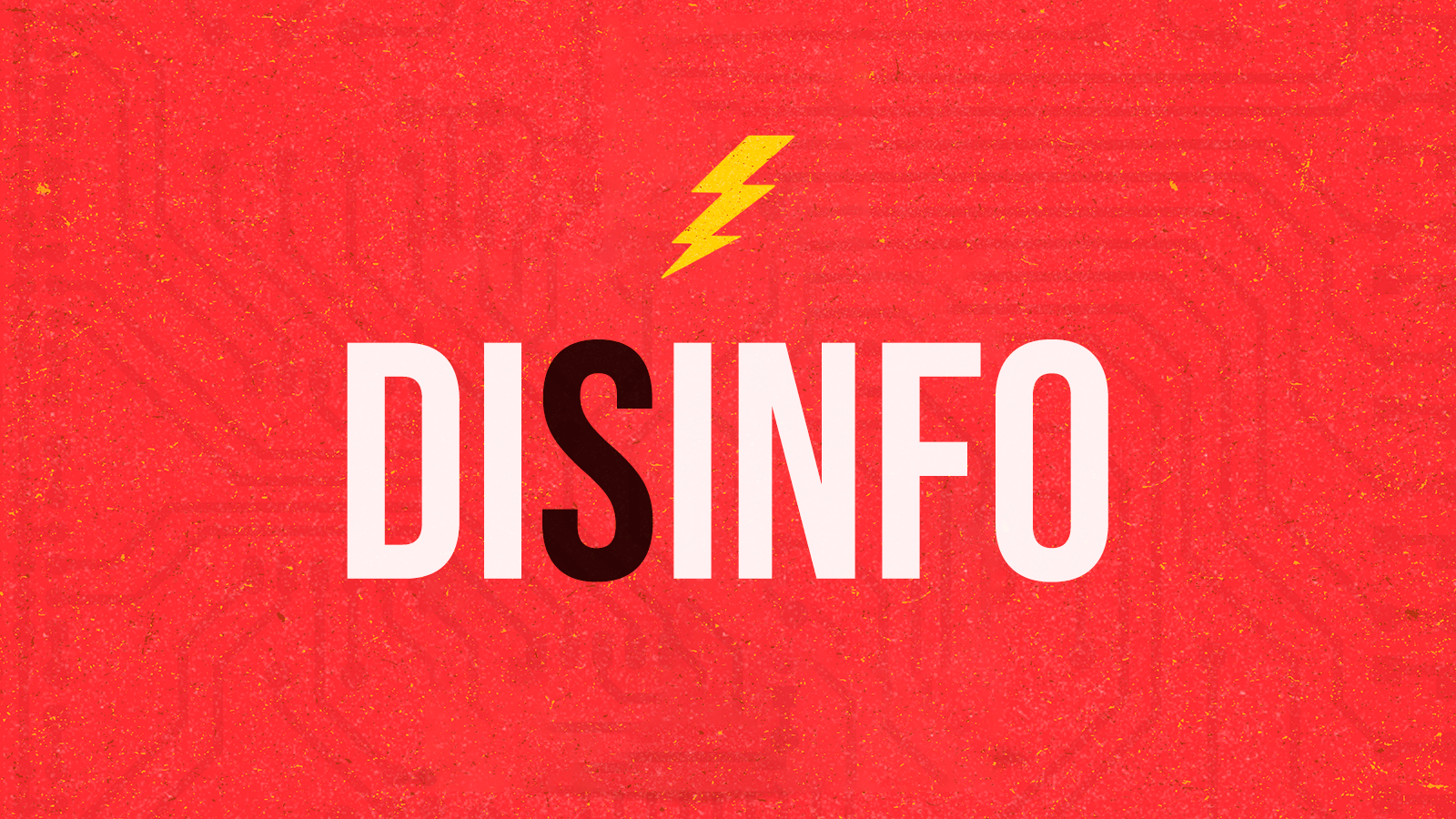On December 6, 2024, Russian Foreign Minister Sergey Lavrov, in an interview with American journalist Tucker Carlson, excerpts of which were published by Russian state agencies, made harsh accusations against the United States concerning the elections in Georgia. According to Lavrov, the U.S. is ignoring the positive OSCE report on Georgia's electoral process simply because it dislikes the results. In an attempt to legitimize anti-Western stances and challenge the U.S.'s role, Lavrov also referenced Kosovo.
The Russian state agency Tass published an article titled, "U.S. doesn’t like Georgian election results, that’s why it Ignores OSCE Report". In the article, the Russian minister draws a connection between Kosovo and Georgia in a single sentence.
"When the OSCE monitors elections, when it used to monitor elections in Russia, they would always be very negative, and in other countries as well, Belarus, Kazakhstan. This time, in Georgia, the monitoring mission of OSCE presented a positive report. And it is being ignored. So, when you need endorsement of the procedures, you do it when you like the results of the election. If you don't like the results of elections, you ignore it. It's like when the United States and other Western countries recognized unilateral declaration of independence of Kosovo, they said this is the self-determination being implemented," Lavrov stated.
In addition to Tass, the full interview was also published by the Russian Ministry of Foreign Affairs.
The mention of Kosovo in this context is not intended as an objective analysis of the situation but rather aims to undermine the legitimacy of the U.S. as a key actor in global politics and to delegitimize support for Kosovo.
Russia uses the issue of Kosovo to construct a narrative suggesting that U.S. interventions, including the recognition of Kosovo's independence, have set precedents that destabilize the international order.
Lavrov also speculated about the U.S. stance on the elections in Georgia. U.S. Secretary of State Antony J. Blinken, in a statement, acknowledged the positive assessment provided by international observers while noting “irregularities and sporadic violence.” “We condemn any contraventions of international norms and join calls from international and local observers for a thorough investigation of all reports of election-related violations,” Blinken’s statement read. The International Election Observation Mission also identified numerous irregularities in the October 26 elections in Georgia.

Lavrov's latest interview is a continuation of Russian officials’ statements, who make unfounded claims against Kosovo whenever given the opportunity during conferences or interviews with foreign media. Russia uses its stance against Kosovo as a tool in its policy to challenge the West and promote its own strategic interests in neighboring countries, in this case, Georgia.
On September 20, 2024, Lavrov stated that Kosovo’s independence was declared without any referendum. On the same day, the spokesperson for the Russian Ministry of Foreign Affairs, Maria Zakharova, referred to Kosovo’s independence as “fake.”
Last year, in Skopje, the OSCE meeting brought together the foreign ministers of the 57 member states of this Vienna based organization. Russian Foreign Minister Sergey Lavrov also participated, once again seizing the opportunity to accuse the EU, NATO, and the OSCE of allegedly committing aggression against an independent country in 1999 when they decided to bomb Serbia. He reiterated the constant narrative that “Kosovo was taken from Serbia by force,” while justifying Russia's war in Ukraine.
On September 30, 2022, Russian President Vladimir Putindeclared four regions of Ukraine as Russian territory. He drew parallels between Kosovo and the annexed regions. Furthermore, in 2022, the Russian Ministry of Foreign Affairs specifically referred to the International Court of Justice (ICJ) ruling on Kosovo to justify that the declaration of independence by Ukraine’s regions aligns with international law. In doing so, they attempt to equate Kosovo’s independence with Russian intervention in the regions of the former Soviet Union.
Russia is among the malign external actors aiming to stir tensions in the Western Balkans by portraying Kosovo and the Albanian majority as hostile toward Serbs.
Regarding the threats posed to Kosovo and the region by foreign actors, U.S. Ambassador to Kosovo Jeffrey Hovenier recently commented on the issue. Speaking on December 10, 2024, at the DISICON conference on information integrity, organized by the National Democratic Institute (NDI), he stated: “There are foreign actors who seek to undermine Kosovo’s democracy by exploiting ethnic divisions. We cannot allow this to happen,” Hovenier said.
*This article is published as part of the Western Balkans Regional Initiative against disinformation. “Western Balkans Anti-Disinformation Hub: exposing malign influences through watchdog journalism.”





























































